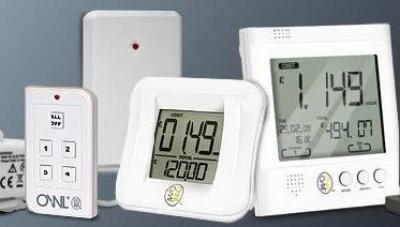Scottish Power Launches Ipswich Smart Meter Trial

Ipswich gets 1000 smart meters, while the UK lags other countries
SmartReach, one of the consortia bidding to provide infrastructure for the government’s smart metering drive, is to test its metering system in 1,000 homes in the Ipswich area, in collaboration with Scottish Power and Siemens.
The trial, announced on Wednesday, is intended to demonstrate the effectiveness of SmartReach’s long-range radio connection technology, which it claims is more reliable, and easier and cheaper to install than alternatives such as GPRS. SmartReach is a collaboration of networking services company Arqiva; BT; information intelligence solutions provider BAE Systems Detica; and smart meter manufacturer Sensus.
First-time connection
Siemens, which already provides managed metering services to Scottish Power, will coordinate, plan and manage the installation of the meters, providing metrics for assessing the speed and success of the installation, as well as ongoing performance for scheduled and on-demand meter reads.
 The trial will in part seek to establish the ability of the consortium’s meters to connect and operate successfully “first time”, avoiding the need for costly repeat visits by engineers. SmartReach claims that even if only five percent of installations were to require repeat visits, it would cost suppliers £600m.
The trial will in part seek to establish the ability of the consortium’s meters to connect and operate successfully “first time”, avoiding the need for costly repeat visits by engineers. SmartReach claims that even if only five percent of installations were to require repeat visits, it would cost suppliers £600m.
“To ensure the best experience for customers, it is important that installation is easy and that smart metering communications work reliably from the time each meter is installed,” said Scottish Power operations director Andrew Ward in a statement. “This trial will help us to evaluate the potential of long-range radio to reach meters wherever they are located, with the goal of achieving high first time connection rates and ongoing high levels of reliability.”
SmartReach uses long-range radio communications provided by Sensus, which the consortium claims is less susceptible than rivals to interference and penetration issues in locations such as meter pits, cellars and basements. The trial will use Arqiva’s existing tower infrastructure.
Single communications technology
The consortium also says its meters use a single communications technology, while others connect via multiple technologies, creating more complications for engineers.
SmartReach is also running trials with Thames Water.
The government has set a 2019 deadline for the deployment of smart energy meters to all homes and small company premises.
Approximately 65 percent of UK homes will be fitted with smart meters by 2015 according to research published in March. In 2011 the percentage of British homes with meters installed was only 4.23 per cent, extremely low compared to Italy where the penetration rate was 94 per cent last year. In Nordic countries, including Sweden, Norway, Denmark, Iceland and Finland, penetration was 70 per cent.
Smart meters are hoped to lead to a reduction in energy demand by enabling people to turn off unused equipment, as well as matching generation to demand. South Korea has announced that a smart meter roll-out will allow it to cancel a plan for nuclear power.
Do you know the meaning of Wi-Fi? Take our quiz.